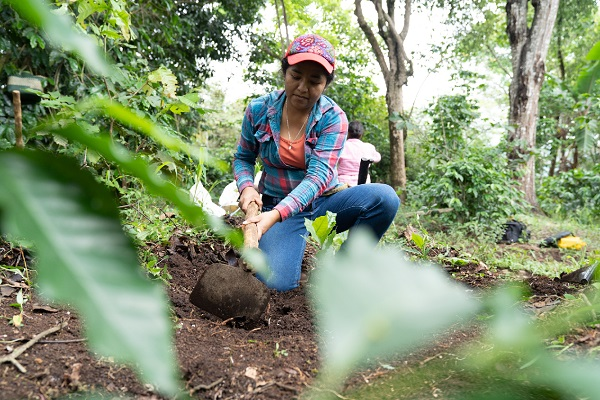Contact us: digitalwages@ilo.org
Digital wages for decent work in Mexico: Findings and opportunities

On May 11, 2022, 24 representatives of government institutions, workers’ and employers’ organizations, financial service and digital payments providers analysed the findings of a rapid assessment of digital wages for decent work in Mexico, in the food and beverage, coffee and retail trade sectors. The meeting was hosted by ILO’s Global Centre on Digital Wages for Decent Work and the ILO Country Office for Mexico and Cuba.
Exploring digital wages in the food and beverage, coffee production and sale, and retail trade sectors
Digital wages refer to payment of wages through deposits in bank accounts, mobile wallets, or prepaid cards. The rapid assessment analysed the challenges and opportunities for the responsible digitization of wages in Mexico, based on three sources of information: the review of labour and financial legal frameworks; interviews with 101 workers (50 men and 51 women) and 18 enterprises engaged in food and beverage in Baja California, coffee in Chiapas; and retail in Mexico City; consultations with 21 representatives from government, workers’ and employers’ organizations, and financial and payroll service providers.
Despite the increase in digital transactions, cash is the main form of payment in Mexico
The analysis shows that the adoption of digital wage payments has progressed differently by sector and region. While coffee production takes place in rural areas, where banking infrastructure is scarce or non-existent and cash is the dominant means of payment, coffee marketing occurs in urban areas and digital wage payments are still incipient. The producing enterprises, medium to large-sized, are oriented to the local, national and international market. Exporting enterprises pay workers and suppliers in cash.
Workers in rural areas consider cash as the only means of payment, due to the lack of banks, ATMs and correspondents, and the predominant use of bills and coins to carry out transactions in the markets. In urban areas, workers in the coffee value chain prefer cash payments. Workers who already receive digital wages identify the ease of making payments and saving as the main advantages.
In the food and beverage sector, constituted of small enterprises oriented to the local urban market, cash is the main means of payment. Restaurants, bars and cafeterias have some systematized processes and devices for accepting digital payments. However, they use the cash they receive from sales to pay workers and suppliers. The workers, mostly young, are willing to receive their wages digitally, as they can access ATMs near their home or work, they have mobile phones and using them for banking operations would not represent an obstacle.
In retail, digital wage payments are widespread, as is the financial service infrastructure. The enterprises range from small to large, with clients in the local, national, and international market. Its’ processes are systematized, particularly the financial and human resources processes, which includes digital wage payments. The degree of labour compliance is higher in this sector and labour informality is reduced, when compared to the coffee and food and beverage sectors. Workers recognize the benefits of receiving their wages digitally; however, cash is the most used means of wage payment. The main reason for the widespread use of cash is the habit of using physical money, people “like to have money in hand.” Workers feel greater certainty and security in the cash payment process than by digital means.
Opportunities to facilitate and accelerate the transition to digital wages
The rapid assessment showed that while there are challenges in the adoption of digital wage payments, including the predominant use of cash in the economy, the informality in enterprises and the weak financial education, there exists conditions to ease and accelerate the transition. Labour and financial legislations are conducive, the digital payment ecosystem is strengthening, Fintech solutions are emerging, and the users demand security in money management and ease of carrying out transactions.
In the coffee production, there is an opportunity for banks, Fintech companies, savings and credit unions to develop innovative financial products and services that are adapted to the needs of the workers and enterprises and to the characteristics of the regions. Agreements between financial institutions to share infrastructure of ATMs and banking correspondents should be prioritized and intensified. It is also essential to promote workers’ formal savings schemes in cooperatives and enterprises, as well as to develop financial and digital capabilities to facilitate the adoption of digital wages.
In the food and beverage and retail sectors, it is recommended to promote the use of the basic payroll bank account and the digital accounts offered by fintech companies as well as to build employers’ and workers’ financial and digital capabilities so that they understand the different financial services and products. In coordination with workers’ and employers’ organizations and financial institutions, the benefits of digital wage payments should be highlighted as a mean to advance financial inclusion.
In general, it is necessary to strengthen the coordination of actors in the ecosystem of digital payments, decent work and financial inclusion and to highlight the relationship between responsible digital wage payments and decent work. Enterprises should be encouraged to comply with their labour obligations, to digitize their processes so that they can accept and make digital payments and should be guided in the transition to digital wage payments. There is a need to sensitize workers and employers about their rights as users of financial services.
“The transition to responsible digital wages enables workers, particularly the most vulnerable, including women, migrant and informal workers, to receive timely, fair and full wages, to have better control over their wages and access formal financial services for better resilience and economic opportunities”. Pedro Américo Furtado, Director of the ILO Country Office for Mexico and Cuba.
Click here to see the PowerPoint presentation used during the workshop (in Spanish).
